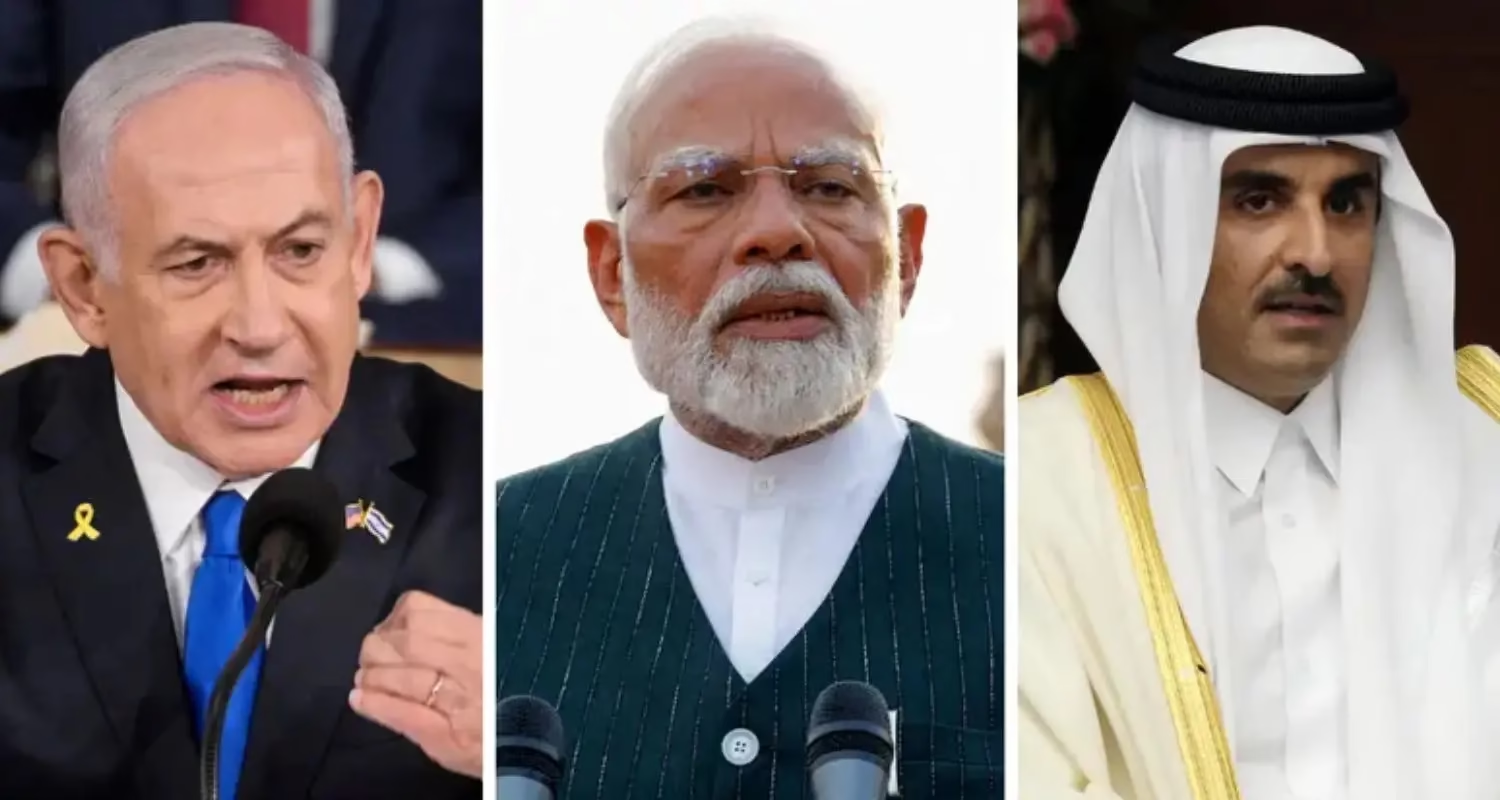
In a strong and unambiguous statement at the United Nations Human Rights Council (UNHRC) in Geneva on September 16, 2025, India condemned the recent Israeli airstrikes in Qatar, calling them a “violation of sovereignty” and urging all parties to return to dialogue and diplomacy. India’s Permanent Representative to the UN, Arindam Bagchi, expressed “deep concern” over the attacks, which targeted Hamas negotiators based in Doha.
“This is not only an affront to Qatar’s sovereignty but a dangerous escalation that threatens peace, security, and stability across the region and beyond,” Bagchi said. Without directly naming Israel, India’s position made clear its growing unease over what it termed “military aggression,” reflecting a firm stand in favor of international law and order.
What Happened: The Israeli Airstrikes in Qatar
Earlier in September 2025, Israel launched rare airstrikes against Hamas officials operating out of Qatar’s capital, Doha. The strikes reportedly targeted high-level Hamas negotiators, dramatically escalating tensions in the already volatile Middle East region.
Qatar immediately condemned the strikes as “state terrorism” and took the matter to international forums, demanding accountability and action. Several other countries, including Algeria and Pakistan, joined Qatar in denouncing Israel’s actions, while the European Union expressed solidarity with Doha.
India’s Balanced and Principled Stance
India’s statement at the UN reflects a careful diplomatic balance. While stopping short of explicitly naming Israel, the Indian government made it clear that it strongly condemned actions that undermine national sovereignty and destabilize the region. “We unequivocally condemn the violation of Qatar’s sovereignty,” Bagchi remarked, reinforcing India’s consistent approach toward international conflicts.
Furthermore, India emphasized the critical need for restraint and de-escalation. The country called on all parties involved to respect international law and avoid actions that could worsen tensions. “It is essential for all stakeholders to engage in meaningful dialogue, not military confrontation,” Bagchi added.
This statement aligns with India’s broader foreign policy of non-interventionism and support for peaceful resolution of conflicts, while also signaling solidarity with Qatar and other Gulf nations.
Growing Global Concern
The Israeli strikes in Qatar did not occur in isolation. They come at a time of growing regional instability, with multiple conflicts involving Israel, Palestine, and neighboring states. The international community, including the United Nations and various human rights organizations, expressed alarm that unilateral military actions further endanger innocent lives and regional security.
UN High Commissioner for Human Rights also condemned the strikes, stating they “seriously compromise the already fragile regional stability.” This widespread global condemnation highlights the sensitive geopolitical ramifications of such military actions.
Julia Parker, a geopolitical analyst at the Center for International Peace, commented:
“This is a pivotal moment. India’s clear stance at the UN reinforces the importance of international law. The call for dialogue shows that peaceful negotiations remain the only sustainable solution to deep-rooted conflicts in the Middle East.”
What India Seeks: Dialogue and Peaceful Resolution
India’s statement urged all parties to engage in constructive dialogue to resolve tensions. It emphasized that long-term peace is possible only through mutual understanding and negotiations, not through acts of violence.
India called for respect toward the sovereignty of nations, particularly emphasizing that violations set a dangerous precedent in the age of global interconnectedness.
Bagchi concluded his remarks with a strong appeal:
“We urge all stakeholders to exercise restraint, step back from military adventurism, and prioritize peaceful resolution of disputes through dialogue.”
Impact on India’s Diplomatic Relations
India’s condemnation of the Israeli strikes in Qatar reflects its growing diplomatic ties with Gulf nations and its commitment to a rules-based global order. In recent years, India has strengthened its relationships with Middle Eastern countries, focusing on economic partnerships, energy security, and strategic cooperation.
The firm stand at the UN Human Rights Council signals that India will not hesitate to take principled positions in matters of international law and human rights, irrespective of geopolitical complexities.
Conclusion
India’s statement at the UN underscores its deep concern over the Israeli airstrikes in Qatar. By condemning the violation of Qatar’s sovereignty and urging peaceful dialogue, India continues to advocate for a balanced, lawful, and stable international order. The world now watches closely as regional tensions persist, awaiting steps toward de-escalation and diplomatic resolution.



